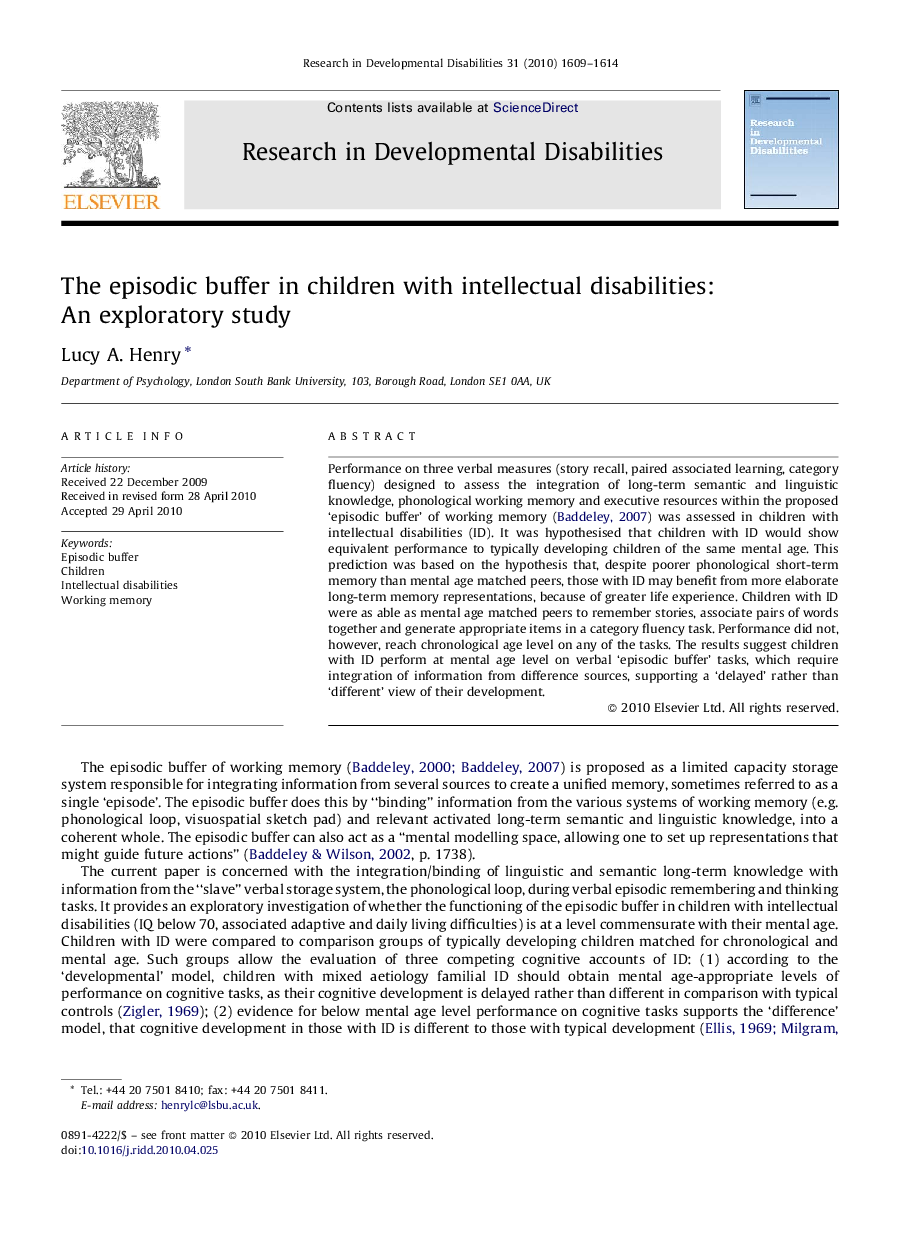| Article ID | Journal | Published Year | Pages | File Type |
|---|---|---|---|---|
| 10318339 | Research in Developmental Disabilities | 2010 | 6 Pages |
Abstract
Performance on three verbal measures (story recall, paired associated learning, category fluency) designed to assess the integration of long-term semantic and linguistic knowledge, phonological working memory and executive resources within the proposed 'episodic buffer' of working memory (Baddeley, 2007) was assessed in children with intellectual disabilities (ID). It was hypothesised that children with ID would show equivalent performance to typically developing children of the same mental age. This prediction was based on the hypothesis that, despite poorer phonological short-term memory than mental age matched peers, those with ID may benefit from more elaborate long-term memory representations, because of greater life experience. Children with ID were as able as mental age matched peers to remember stories, associate pairs of words together and generate appropriate items in a category fluency task. Performance did not, however, reach chronological age level on any of the tasks. The results suggest children with ID perform at mental age level on verbal 'episodic buffer' tasks, which require integration of information from difference sources, supporting a 'delayed' rather than 'different' view of their development.
Related Topics
Life Sciences
Neuroscience
Behavioral Neuroscience
Authors
Lucy A. Henry,
